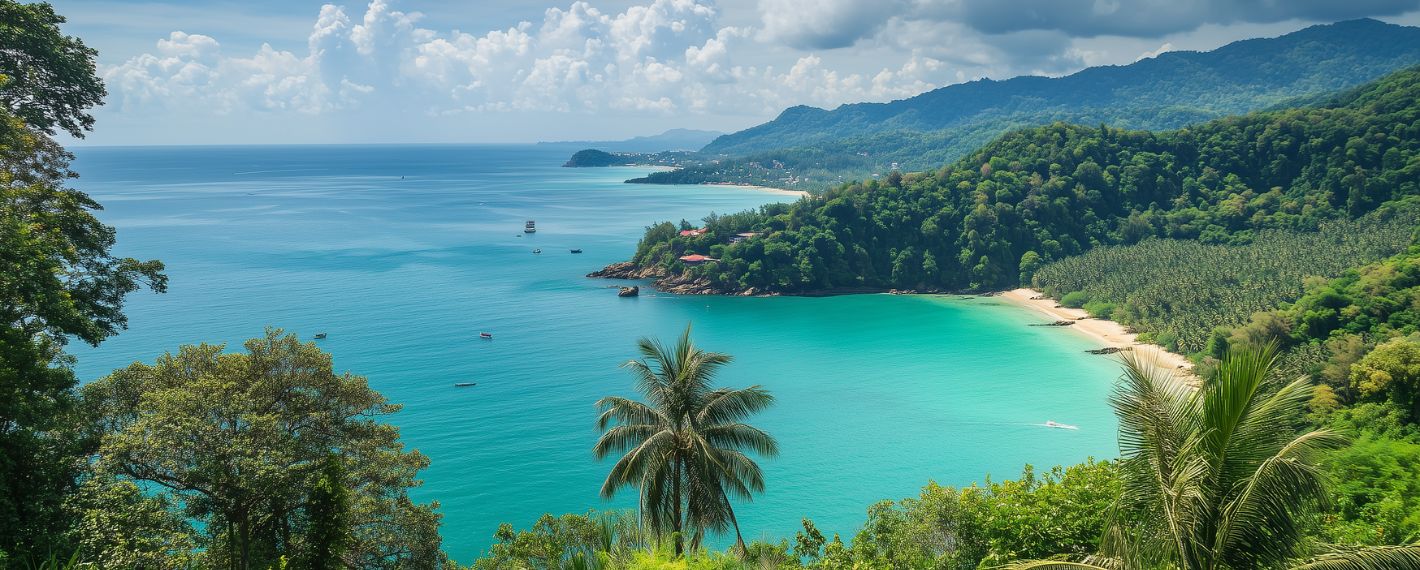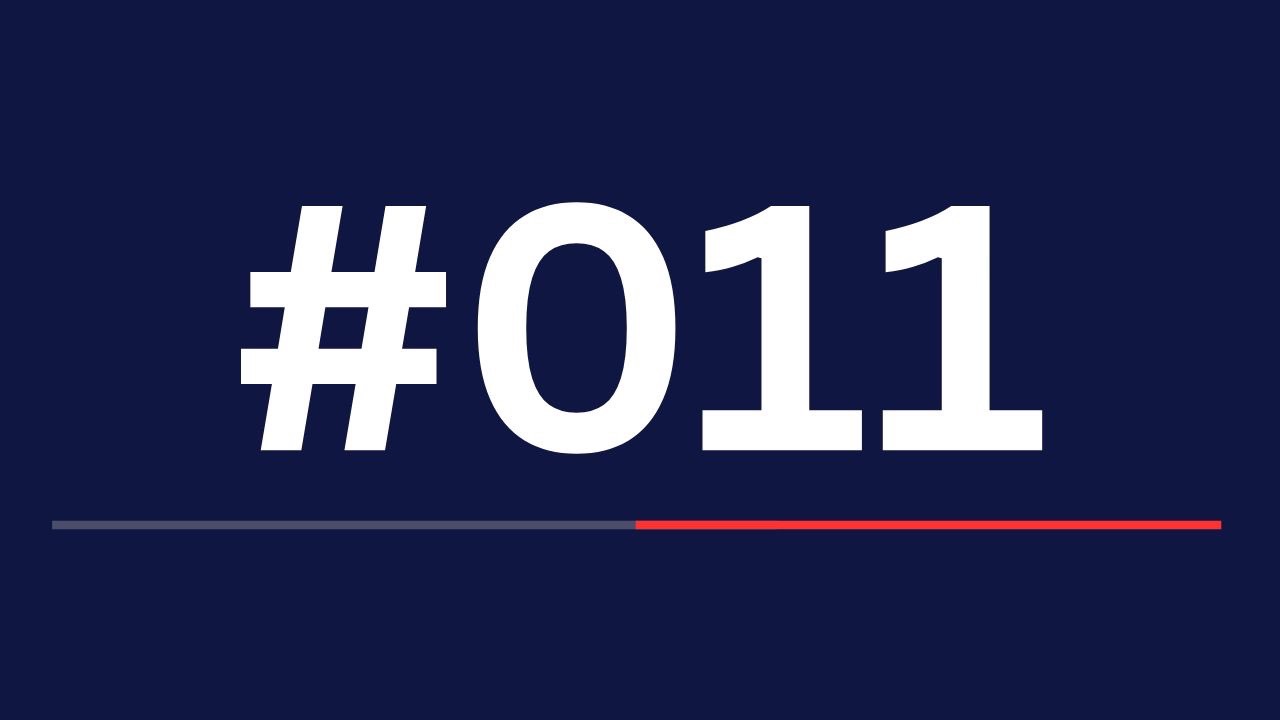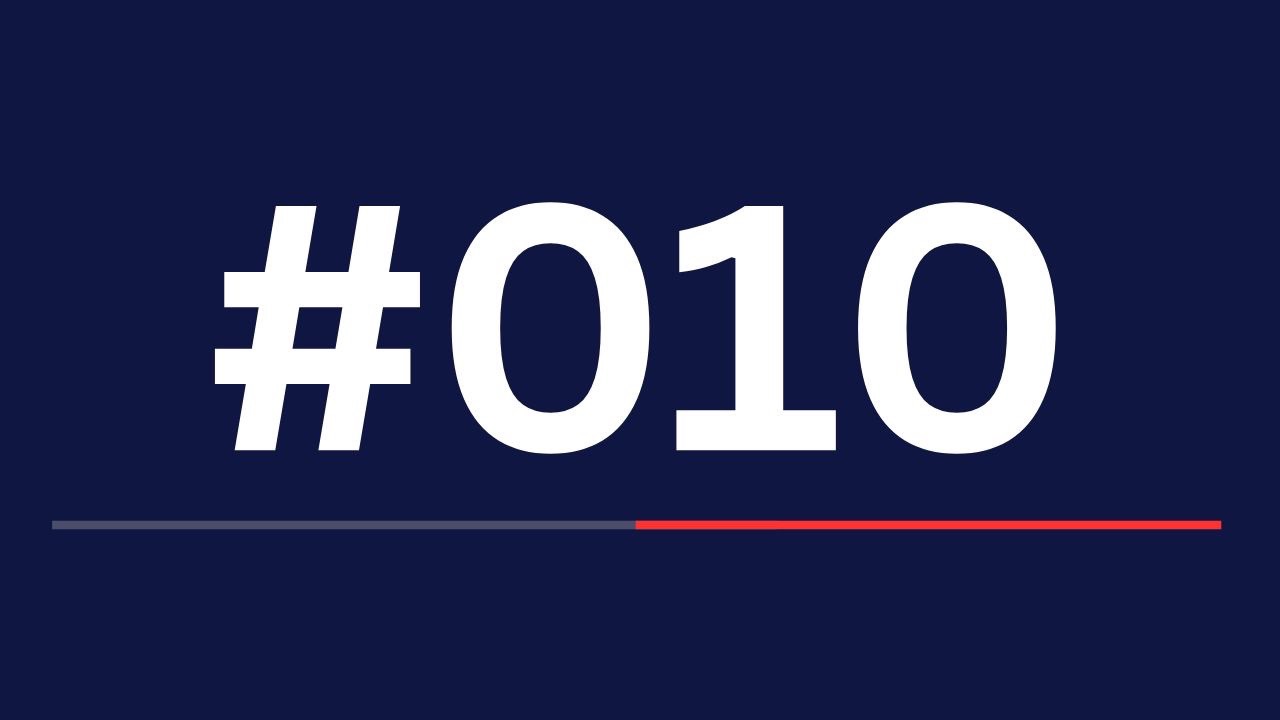What to Take Care of Before (and After) Moving to Thailand

So, you've made the decision. Thailand isn't just a vacation destination anymore… it's going to be home.
Maybe you're retiring with a solid pension, working remotely from Sukhumvit, or moving the family for a completely different type of life. Whatever brought you here, you've crossed the mental bridge from "thinking about it" to "actually doing it."
But here's what very few people talk about... there's a massive gap between planning your move from your home country and actually executing it.
So, this week's edition is your month-one roadmap to that. The unglamorous... but essential technical work that generally needs to be sorted out in the earlier days as to avoid future headaches later on.
Pre-Departure
In an ideal world, as much as possible is taken care of before departure. Now, it's impossible to sort everything out from home... but the more you get sorted before you arrive, the smoother those first weeks become. Particularly when it comes to getting a Thai Bank Account opened up because these days… this has become an extremely difficult thing to do without proper planning ahead of time. We'll talk more about this later on.
Visa Prep:
If you're pursuing Thailand's most popular retirement visa, you can start the Non-O Retirement Visa process through your local Thai embassy while still at home. This gets you that initial 90-day entry, which you'll extend to a full year once you're in Thailand.
For those who want longer-term certainty locked in before landing, consider completing the entire application for options like the Non-OA visa (1-year upfront), LTR visa (5-years upfront), or Thailand Privilege Card (at least 5 years upfront) from your home country. This way, you'd arrive with your long-term status already locked in.
Remote workers and digital nomads should note that the Destination Thailand Visa (DTV) must be obtained from outside Thailand, so it's definitely a pre-departure task.
That said, you don't have to start the visa process from home. Thailand offers very generous visa exemptions for most Western countries. But... starting early often makes life much easier once you're navigating Thai bureaucracy in person and on the ground.
Money Setup:
Contact your home bank and remove any international spending blocks on your cards. Nothing is more frustrating in your first week than having your card declined and dealing with time-zone differences trying to get banking support from overseas. It’s a real pain.
Housing Research:
Unless you're moving in with Thai family... start researching hotels, Airbnbs, or short-term serviced apartments. I strongly recommend against signing any long-term rental contracts before arrival.
Think of your first accommodation as a "base camp" for the first little bit. You'll want flexibility during those initial weeks to explore neighborhoods and understand what actually works for your lifestyle.
Week 1:
Your first week is about immediate needs and basic orientation. Don't try to accomplish everything. Just focus on what you absolutely need to function.
SIM Cards:
Get a prepaid SIM card at the airport when you arrive. Yes, it costs more than waiting until you reach your final destination, but immediate connectivity is worth the extra few hundred baht in my opinion.
Thailand has three major carriers: AIS, TRUE, and DTAC. That said, DTAC and TRUE merged a few years back. Nonetheless, I recommend AIS. This is who I’ve used for many years and they’ve never served me wrong. Expect to pay 400-900 baht for a prepaid package (you will later convert to a monthly post-paid plan).
Note that you'll need your passport to get this prepaid SIM Card. This is standard procedure throughout Thailand.
Apps To Download:
Before you do anything else, download Grab for transportation, food delivery, and small package services. You'll use likely use this a lot.
Get Line, Thailand's dominant messaging app. Althought it's not the best messaging App out there... you'll need it for communicating with landlords, service providers, and any future Thai friends you make.
Save emergency contact numbers: 1155 (Tourist Police), 191 (Regular Police), and 1669 (Ambulance Services).
First ATM Withdrawal:
Thai ATMs charge a 220 baht fixed fee for foreign cards, so withdraw larger amounts less frequently. If you're using a platform like Wise and have already converted funds to baht, you'll avoid unreasonable currency conversion fees, but will still need to pay this fixed ATM fee. Some foreign banks refund this fixed Thai ATM Fee (ie. Charles Schwab in the US), but most don't.
Transportation Options:
Depending on where you are in the Kingdom, consider a short-term vehicle rental if your location requires it. A foreign driver's license and International Driving Permit should suffice here.
Important safety note: Thai roads are extremely dangerous. If you're not experienced on a motorbike, stick with car rentals, public transportation, or Grab during your adjustment period.
Week 2:
This is when the real work begins. Week two is about making informed choices that will shape your longer-term experience.
Location Scouting:
If you haven't chosen your specific area for living yet, this is exploration time. Online research (like this Newsletter) can be valuable, but there's no substitute for spending actual time in different neighborhoods or areas to understand their rhythms.
If you've chosen your location, start actively working with real estate agents (or work independently) to view longer-term housing options. Either strategy works... but if you’re brand new to Thailand, then I’d recommend using a quality realtor.
Insurance:
If you didn't arrange health insurance before arrival, week two is decision time as to deciding if you will purchase this or not. Some visas have specific insurance requirements, so ensure any plan you choose satisfies those mandates.
You can work with a reputable insurance broker or directly with insurance companies to better understand your options here.
Remember: your insurance needs will likely increase with age, so consider long-term sustainability, not just immediate costs.
Visa Process Initiation:
If you entered on visa exemption (ie. you did not previously start or complete the Thai Visa process from your home country), now's the time to start your longer-term visa processing. You can handle this independently or work with a visa agent. Either approach has merits depending on your comfort with Thai bureaucracy.
Banking Challenges (Important):
Here's something most people don't expect: Opening a Thai bank account can be extremely difficult (near impossible) if you don't yet have a Non-Immigrant visa or other Long-Term Visa such as an LTR or Thailand Privilege Card. Most banks now require these visa types for new foreign account holders.
This is exactly why I always recommend that people at least start the Visa Process from their home country. In the case of Thailand’s most popular Retirement Visa… as mentioned previously, you can get the 90-Day Non-O from your local Thai Embassy or Consulate, and this makes it so much easier getting a bank account open which you will need to do as part of the 12-month visa extension here.
Week 3:
Now, if you've secured a long-term rental, week three becomes about making it functional.
Rental Contracts:
Most Thai rental contracts require substantial upfront payments: typically one to two months' security deposit plus first month's rent in advance. For a 30,000 baht monthly rental in Bangkok, prepare to have 90,000 baht ready (60,000 baht deposit plus 30,000 baht first month).
This is where a platform like Wise really shines as you can easily convert funds to baht at mid-market rates and transfer directly to your landlord's Thai bank account... even if you don’t yet have your own Thai Bank Account.
Utility Setup:
Your real estate agent will typically help with internet, electricity, and water accounts. They should also work with the landlord to help handle the TM.30 form that must be submitted to Immigration once you lock in a long-term rental.
Social Circle Building:
Long-term happiness as an expat often depends on community connections. I'd recommend you look for activities that align with your interests such as tennis clubs, golf groups, Muay Thai classes, motorbike riding groups, CrossFit, craft beer events, volunteer groups, etc. You name it, Thailand probably has it.
The goal isn't "to network".
That’s kind of a lame way to think about it. It's more about finding like-minded people through shared activities and interests. Most successful expat friendships form around genuine common interests, not just shared "we're both foreigners in Thailand" status. Relationships built on this premise seldom last.
Week 4:
Your fourth week is about establishing some systems that will serve you well beyond your initial adjustment period.
Healthcare Registration:
Consider pre-registering at one of Thailand’s many hospitals. This involves providing passport information, insurance details (if applicable), and basic medical history. It's not mandatory by any means, but creates peace of mind and familiarity with Thailand's excellent private healthcare system.
Some expats also register with local clinics for routine care. Certain clinics offer membership programs that include at-home visits. This is particularly valuable for families with young children.
Driver's License Process:
If you plan to drive or ride long-term, start the Thai driver's license process. You can handle this independently. I wrote a whole other Newsletter about how to do this here. No need to use a drivers license agent to help with this. The process is exremely cheap and relatively straightforward in my opinion.
Timing note: Although not necessary, you should probably ensure that your long-term visa is approved before starting this process. I always find it easier to handle government-related items one step at a time.
30-Day Checkpoint:
By the end of your first month, you could realistically sort out the following items (if you put the right plan in place):
- Valid long-term visa (approved or well underway)
- Health insurance secured (if applicable) and hospital pre-registration completed
- Organized money management through something like Wise, your home bank, and/or your newly opened Thai bank account
- Housing situation resolved (short-term base or long-term rental)
- Initial social connections through activities or communities
- Basic Thai phrases known
- Driver's license process initiated or completed
Final Thoughts:
None of this needs to be perfect, and timelines can vary significantly based on your specific circumstances. The goal isn't rigid adherence to a schedule or anything like that.
It's more about having a logical framework when everything feels overwhelming. Some people complete this entire process in three weeks. Others take three months. Both approaches can work.
These first 30 days are kind of a pain (in many ways) but they are important to a pretty high degree in my opinion.
Getting things right early on means you can focus on actually enjoying Thailand rather than constantly dealing with administrative issues or blocks later on.
Your future self will thank you when you're sipping coffee on your balcony, watching Thailand wake up, knowing that everything important is handled.
When You're Ready, Here's How We Can help:
1. Get your Visa sorted without the stress: Your entire Thai visa application handled from start to finish. No paperwork headaches, no Embassy or Immigration office stress. Even if you're still in your home country, we help start the process, get you approved efficiently, and enter Thailand with complete clarity so you can focus on actually enjoying life here.
2. Learn Thai that actually sticks: Join Teacher Fah's Thai Language Challenge. A 100-day structured program that's already helped over 900 expats build real speaking skills they can use daily. If you'd like to see my progress after her 100-day challenge so you know what you can achieve, just watch this video here. Enrollment is limited to 50 students per cohort to ensure personal attention. If doors aren't open right now, you can join the waitlist for first access.





